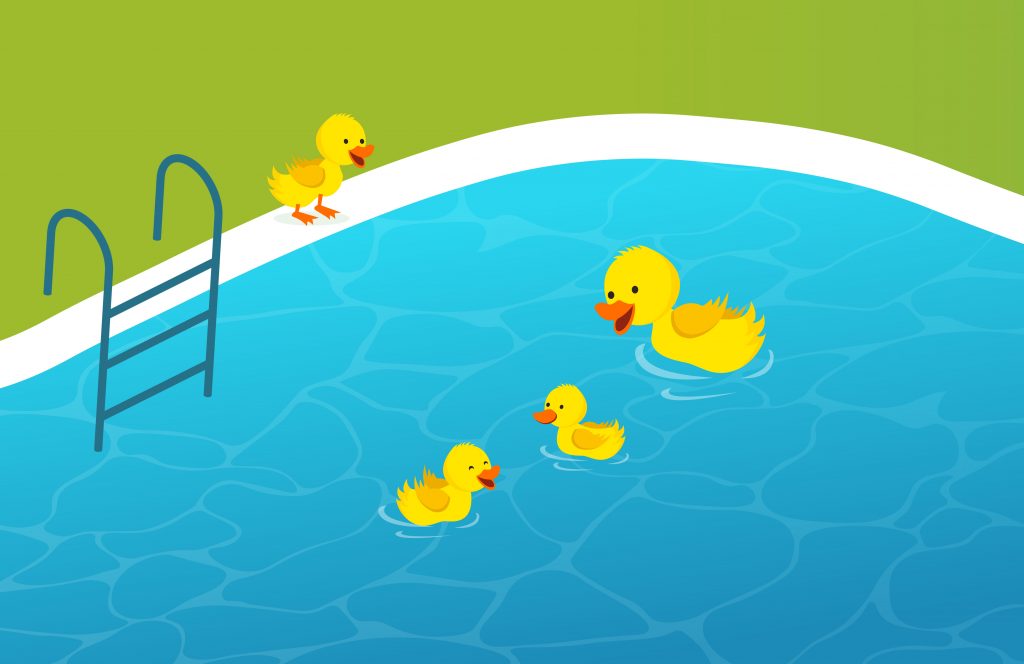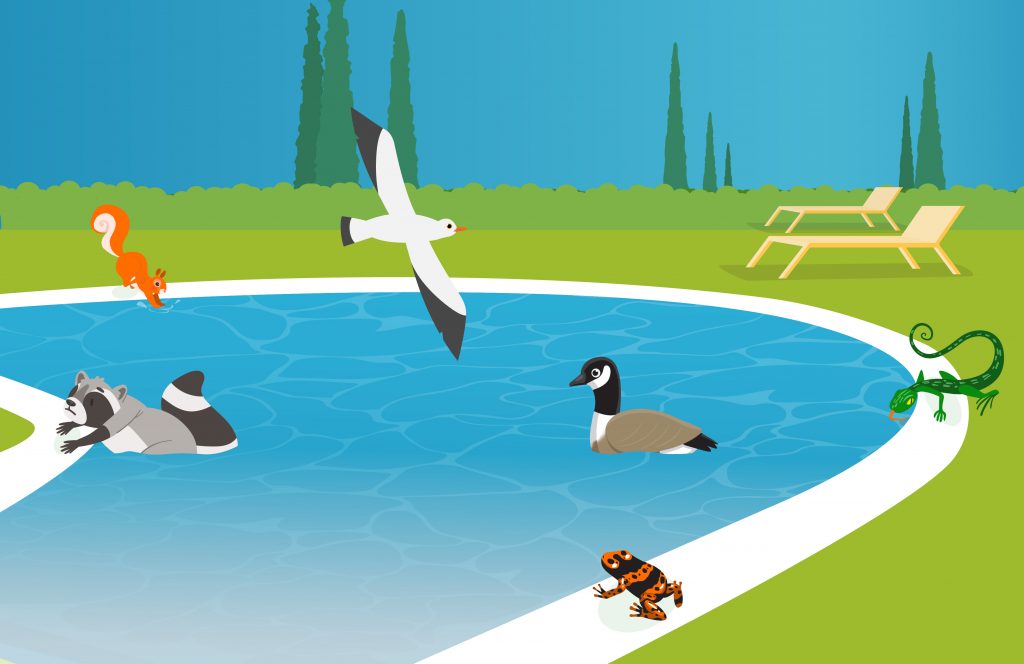At Aqua Blue Pools, we create pools for everyone to enjoy. Our pools are loved so much, they occasionally attract some unwanted guests — one’s with feathers, wings and a beak.
That’s right, you might head to your pool for a relaxing morning swim only to find that some ducks have got there first.
If you have ducks in your pool — don’t worry. In this article, we explain everything you need to know about ducks in your chlorine swimming pool, including whether it can cause harm to the ducks, whether it can cause damage to your pool and how you can keep ducks out of your pool.
Looking for your dream pool? Get in touch with our team to bring your dream to reality – call [ld_default] today!

Will chlorine harm ducks?
We are often asked the question ‘can ducks swim in chlorine?’ The answer is technically yes, although we don’t recommend they swim in chlorine for a long time. Ducks typically aren’t harmed by chlorine pools, but they could damage their internal organs if they ingest chlorine in large amounts. We strongly suggest getting rid of the ducks as soon as you notice them.
How do I remove a duck from my pool?
If you notice a duck in your pool, we recommend removing it as quickly as possible. This may be easier said than done, but a good method is to try and scare the duck away. Throw a soft object into the pool (not directly at the duck!) to ripple the water. In many cases, the duck will simply fly out and away.
If you’re unable to get rid of the duck, call your local veterinarian to help. A professional will be able to remove the duck for you.
What other animals can get in my pool?

It depends on how open your backyard is to wildlife, and what State you live in, but there are several animals and creatures that can get in your pool – here are just a few:
- Birds
- Geese
- Racoons
- Frogs / Toads
- Squirrels
- Lizards
Cats and Dogs can get in your pool too – cats tend to stay away from water, but if you have an open backyard, a stray or loose dog could take a dip!
Is duck poop harmful to humans?
Duck poop can contain diseases that thrive in water and may be harmful to humans. We strongly recommend refraining from swimming in the pool when the duck is present. Once the duck has been removed, continue treating the pool with chlorine before returning to the water. The chlorine should neutralise harmful bacteria left by the duck.
How can I prevent ducks from swimming in my pool?
There are various ways you can stop ducks from swimming in your pool:
Use decoys to scare them away
Ducks tend not to settle in a pool if they think there is a larger animal already there. Use a floating animal decoy to scare them away. Remember — the more realistic the decoy, the more likely it is to scare the duck away.
Cover or fence
A simple pool cover or fence can help keep unwanted guests out of your pool. As well as ducks and other animals, a cover or fence will also protect against falling leaves and other debris.
Motion-activated sprinkler
A motion-activated sprinkler is a great way to hydrate your garden while also warding off any ducks. The motion of the sprays should scare the ducks and keep them at bay.
Install an automatic pool cleaner
An automatic pool cleaner will cause movement in the water both on the surface and underneath. If a duck finds its way into your pool, the unexpected motion will most likely scare it away.
Ducks love our pools — and can you blame them? At Aqua Blue Pools, we design and build stunning backyard pools made to each customer’s specifications. Our expert pool designers and pool builders listen to your requirements and create a pool in your choice of style, material and design.
We also have a variety of additional extras to truly bring your pool to life. We provide our services to customers across South Carolina SC, so get in touch to start your journey to owning your dream pool.
Complete our form below to request an appointment! ⬇


